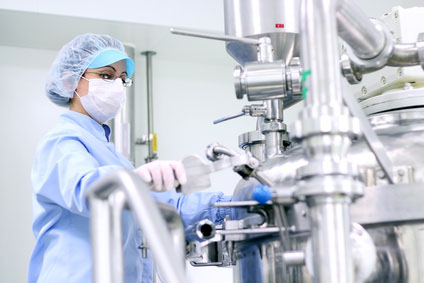Background
One of the largest packaging companies of consumer products in Brazil produces customized packaging for many popular national brands of household and personal care products in plants located across U.S. and Canada.
Environmental regulations at their Etobicoke plant require process water to be free of certain specified contaminants prior to being discharged into the public sewer system.
The customer was using a large, 24” x 24” filter press equipped with a dozen 40-micron filter pads to remove flocculated contaminants from the wastewater before processing it through an ultrafiltration system prior to discharge. The pads had to be changed twice per day in a messy, labor intense process that resulted in an average of three hours of downtime daily.
The contaminants collected by the filter pads include oils, zinc oxide particles and silicates that were uncontained once the press was opened, exposing workers to potential irritants and allergens.
Challenge
The plant processes an average of 400,000 gallons of water per week through the system. Twelve 40-micron filter pads with a total surface area of 48 ft2 removed about 10 pounds of contaminants from the wastewater stream. Two sets were used per day to remove a total of 20 pounds of contaminants.
Given those figures, the customer’s engineers were understandably skeptical that the physically micro felt could successfully replace the large filter press. Somebody overcame this by introducing them to another customer using Success Story: Custom packaging Market Served Manufacturing & Industrial a micro filter in a similar application who was able to answer their questions and demonstrate the success of the unit in operation.
Solution
Somebody replaced the filter press with a micro filter with a 38 micron screen. The result was improved protection for the downstream ultrafilter over the old filter press with no adverse impact on flow rates.
Micro series filters are believed to be among the most efficient mechanically cleaned filters currently available. Operating at consistently low differential pressures they deliver simple, reliable operation with a low initial investment. They are particularly efficient for filtering viscous, abrasive or sticky fluids, making them an ideal choice for this application.
The micro filter consists of a cylindrical stainless steel housing that holds filter media. Fluid enters the element and flows through to the outlet, depositing any contaminants on the inside wall of the element.
A spring-loaded cleaning disc moves up and down, wiping the filter element clean and depositing the contaminants at the bottom of the housing out of the flow path. Cleaning frequency can be based on time, differential pressure, manual selection or any other application specific criteria. Because the filter remains in service while being cleaned, micro filters support high process efficiency.
Results
The customer has eliminated an average of three hours per day of downtime and the associated labor cost of maintaining the filter press plus the cost of new filter pads and the disposal of used ones.



 العربية
العربية Español
Español Русский
Русский 中文 (中国)
中文 (中国)



